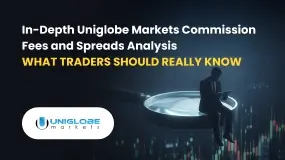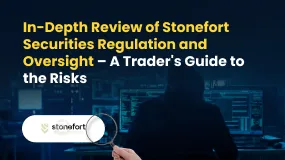简体中文
繁體中文
English
Pусский
日本語
ภาษาไทย
Tiếng Việt
Bahasa Indonesia
Español
हिन्दी
Filippiiniläinen
Français
Deutsch
Português
Türkçe
한국어
العربية
Stock market picks: Goldman's 'unusual' strategy for debt issuers
Abstract:Companies racking up more debt are outperforming those reducing their debt. Goldman explains why, and the companies benefitting form this trend.
Over the past year, investors have shown a preference for companies with quality balance sheets.However, equity strategists at Goldman Sachs have found a more specific and “unusual” performance trend that runs counter to the marketwide leaning: firms spending cash to reduce their debt are lagging those issuing more debt. They introduced two new baskets of stocks to keep an eye on this trend.Visit Business Insider's homepage for more stories.Strategists at Goldman Sachs and elsewhere have recently recommended companies with strong balance sheets as sound investments to weather a global economic slowdown.Beyond the intuitive reason that their cash reserves are higher, these so-called quality stocks are in vogue because they've outperformed others splurging cash over the past year.Investors haven't always rewarded prudent uses of cash. For much of the 10-year bull market, when interest rates were close to zero, companies with the weakest balance sheets were able to tap the debt markets to raise capital. But that source of easy money was gradually closed off as interest rates rose, raising the allure of companies with more cash discipline. “Recent market performance indicates a clear investor preference for safe, high quality balance sheets rather than firms investing for growth, returning cash to shareholders, or paying down debt,” said David Kostin, the chief US equity strategist at Goldman, in a recent note to clients.And yet, Kostin's team found a more specific performance trend that runs counter to the marketwide preference for quality: companies racking up more debt are outperforming those reducing their debt. “Debt reducers” have underperformed “debt issuers” by 10 percentage points over the past year — 3% versus 13%, Kostin said. “This underperformance is unusual because most 'quality' strategies have outperformed during 2018 and into 2019,” Kostin said.Read more: The world's largest wealth manager just made a significant change to its $2 trillion portfolio — and it's a wake-up call to anyone invested in US stocksOne reason for this counter-trend has to do with Goldman's methodology, Kostin said. The strategists screened companies with the highest trailing 12-month net payments (or issuance) of debt as a share of their enterprise value. Unlike market capitalization, enterprise value takes account of how much debt a company has.This meant that Goldman's baskets of stocks skewed towards companies with lower valuations, Kostin said. “Our long/short value factor has lagged by 12% during the past year as investors have continued to reward growth stocks (+6%),” he added.It's also unusual because companies raised their cash spending by 25% to $2.8 trillion last year, according to Kostin, but investors have not rewarded most kinds of cash spending like debt repayments.As Kostin stressed, investors largely prefer companies with strong balance sheets. But this specific screening — of how companies are tackling their debt relative to their enterprise value — is one he says investors should keep an eye on. The basket of companies issuing more debt (which has outperformed the cohort of debt reducers) includes Twitter, Netflix, General Motors, Cigna, and Con Edison.
Disclaimer:
The views in this article only represent the author's personal views, and do not constitute investment advice on this platform. This platform does not guarantee the accuracy, completeness and timeliness of the information in the article, and will not be liable for any loss caused by the use of or reliance on the information in the article.
Read more

In-Depth Uniglobe Markets Commission Fees and Spreads Analysis – What Traders Should Really Know
For experienced traders, the cost of execution is a critical factor in broker selection. Low spreads, fair commissions, and transparent pricing can be the difference between a profitable and a losing strategy over the long term. This has led many to scrutinize the offerings of brokers like Uniglobe Markets, which presents a tiered account structure promising competitive conditions. However, a professional evaluation demands more than a surface-level look at marketing claims. It requires a deep, data-driven analysis of the real trading costs, set against the backdrop of the broker's operational integrity and safety. This comprehensive Uniglobe Markets commission fees and spreads analysis will deconstruct the broker's pricing model, examining its account types, typical spreads, commission policies, and potential ancillary costs. Using data primarily sourced from the global broker inquiry platform WikiFX, we will provide a clear-eyed view of the Uniglobe Markets spreads commissions prici

In-Depth Review of Stonefort Securities Regulation and Oversight – A Trader's Guide to the Risks
For experienced traders, the process of selecting a new broker transcends a simple comparison of spreads and leverage. It is a meticulous due diligence exercise where the integrity of the broker's regulatory framework is paramount. Stonefort Securities, a relatively new entrant in the crowded brokerage space, presents a complex and often contradictory profile. On one hand, it boasts a modern MT5 platform and a stream of positive user testimonials. On the other hand, it is shadowed by severe regulatory warnings that question the very foundation of its operations. This in-depth review focuses on the core issue for any long-term trader: Stonefort Securities regulation and oversight. We will dissect the broker's corporate structure, scrutinize its licensing claims, and analyze what the data implies for trader protection and fund security. For traders evaluating whether Stonefort Securities is a trustworthy partner, understanding these details is not just important—it is essential.

Seaprimecapitals Withdrawal Problems: A Complete Guide to Risks and User Experiences
Worries about Seaprimecapitals withdrawal problems and possible Seaprimecapitals withdrawal delay are important for any trader. Being able to get your money quickly and reliably is the foundation of trust between a trader and their broker. When questions come up about this basic process, it's important to look into what's causing them. This guide will tackle these concerns head-on, giving you a clear, fact-based look at Seaprimecapitals' withdrawal processes, user experiences, and trading conditions. Most importantly, we'll connect these real-world issues to the single most important factor behind them: whether the broker is properly regulated. Understanding this connection is key to figuring out the real risk to your capital and making a smart decision.

Is Seaprimecapitals Regulated? A Complete Look at Its Safety and How It Works
The straightforward answer to this important question is no. Seaprimecapitals works as a broker without proper regulation. This fact is the most important thing any trader needs to know, because it creates serious risks for your capital and how safely the company operates. While this broker offers some good features, like the popular MetaTrader 5 platform and a low starting deposit, these benefits cannot make up for the major risks that come from having no real financial supervision. This article will give you a detailed, fact-based look at Seaprimecapitals regulation, what the company claims to do, the services it provides, and the clear differences between official information and user reviews. Our purpose is to give you the information you need to make a smart decision about the risks and benefits of working with this company.
WikiFX Broker
Latest News
WikiFX's New Evaluation of ATM Capital LTD: Does its License Protect the Arab Investor?
How a Fake Moomoo Ad Led to the “New Dream Voyage 5” Scam
Is Axi Legit? A Data-Driven Analysis of Its Regulatory Standing and Trader Feedback
Trive Investigation: High Score, Hidden Risk - The Profit Paradox
In-Depth Uniglobe Markets Commission Fees and Spreads Analysis – What Traders Should Really Know
FXPesa Review: Are Traders Facing High Slippage, Fund Losses & Withdrawal Denials?
CMC Markets Australia Revenue Surges 34%, But High-Net-Worth Clients Face Tax Phishing Threat
Bessent believes there won't be a recession in 2026 but says some sectors are challenged
mBank Exposed: Top Reasons Why Customers are Giving Thumbs Down to This Bank
Young Singaporean Trader Grew USD 52 into a USD 107,700 Portfolio
Currency Calculator



